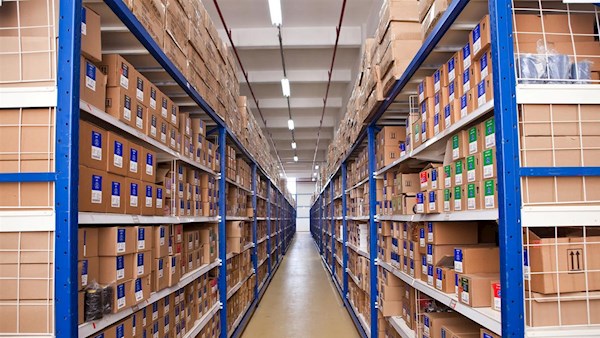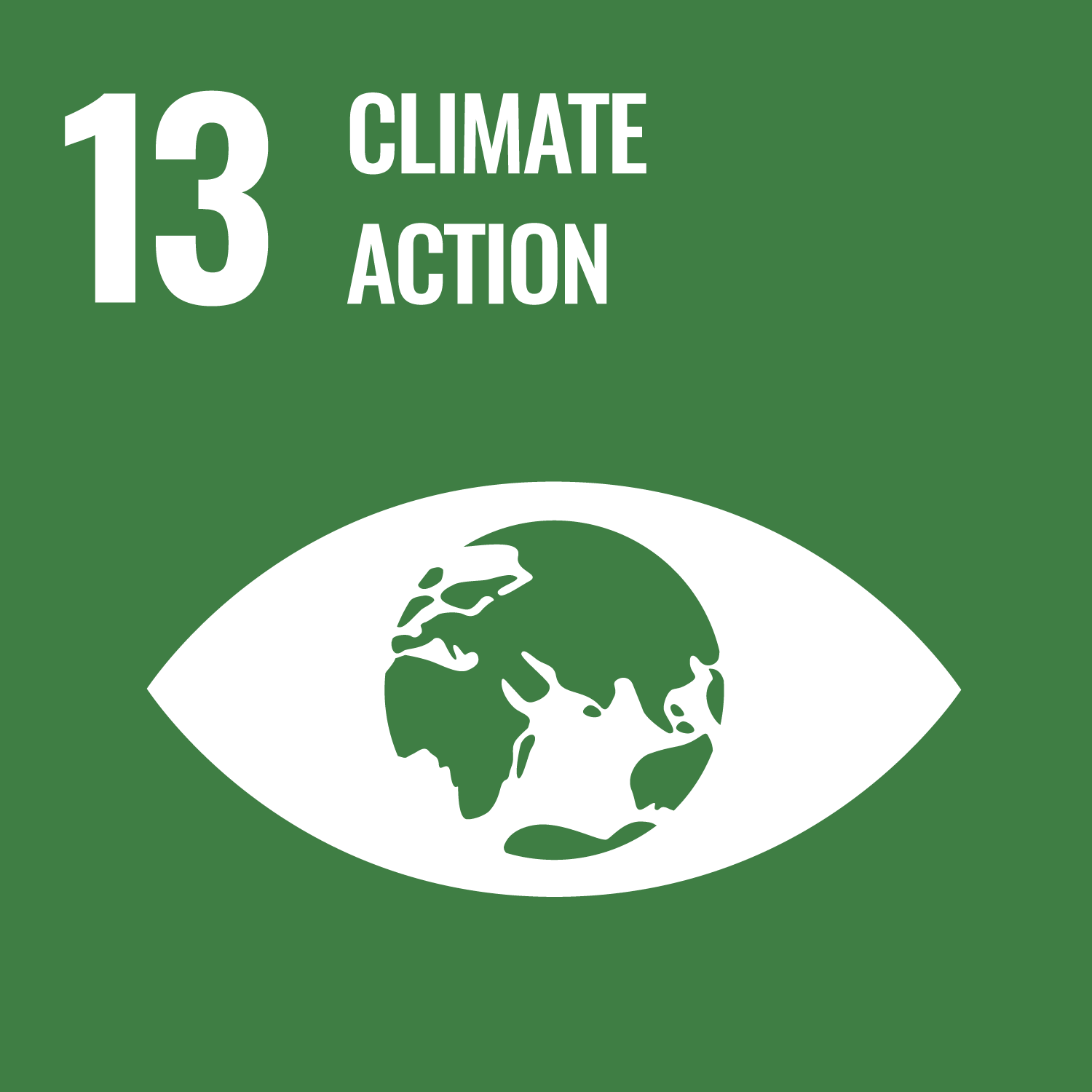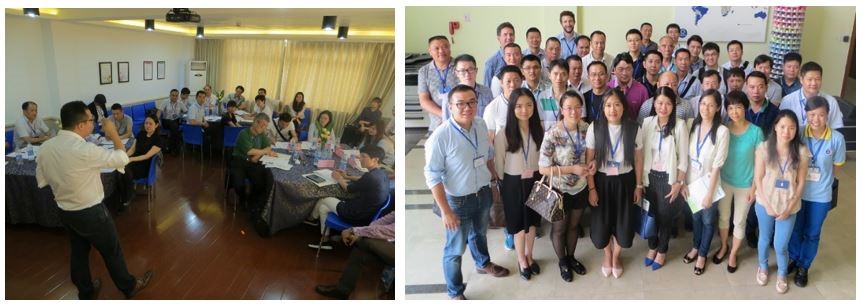
Supplier risk management




As the leading global manufacturer of threads, zips and related products, Coats plays a key role in the apparel and footwear supply chain. Our success in the marketplace relies on responsible behaviour and good corporate citizenship. We also want to extend this to our customers and suppliers.
In 2015, Coats developed a detailed Supplier Code. The Code describes the standards and values we expect from our suppliers in terms of labour practices, human rights, environmental management, responsible sourcing and business conduct. That same year, Coats China successfully rolled out the Code to 75 of its key suppliers.
 Taking the experience of the China workshops into consideration, we decided to roll out the Code to the rest of the world. We segmented our supplier base to identify who the key suppliers were and then designed a face-to-face rollout programme to introduce them to our standards and expectations.
Taking the experience of the China workshops into consideration, we decided to roll out the Code to the rest of the world. We segmented our supplier base to identify who the key suppliers were and then designed a face-to-face rollout programme to introduce them to our standards and expectations.
Our key suppliers were introduced to the Supplier Code at a one-day workshop, hosted by our local Coats site. This gave suppliers an opportunity to study the requirements of the Code and open up communication channels for further questions and support after the workshop. By the end of 2016, the Supplier Code was rolled out globally to all of our key suppliers located in our primary markets.
Engaging with our key suppliers
Although the scope of the Supplier Code extends to all Coats suppliers, particular attention was given to key suppliers who:
- Have high spend volume with us
- Operate in a country which is perceived to be ‘high risk’ in relation to business, human rights, employment or environmental practices
- Supply goods or services which could be considered potentially high risk.
The Supplier Code was presented to our key suppliers in the setting of a workshop hosted by Coats. Following these workshops, suppliers were required to conduct a gap analysis of their own procedures and practices against the Supplier Code. They were asked to report back to Coats with their analysis, denoting areas of non-compliance and providing an action plan for improvement. Our procurement teams are now monitoring the implementation of the plan and providing hands-on advice and support for each of our key suppliers.
Thirteen workshops were held in strategic locations throughout 2016 (Turkey, India, Vietnam, Indonesia, Sri Lanka, Brazil, Mexico, Hong Kong, Hungary, Germany, Italy, USA and UK). Procurement Managers from the larger neighbouring units attended one of these workshops and were trained to host a workshop in their own country, where the Procurement Managers from smaller neighbouring countries also attended.
Following these initial workshop and review of non-compliance by our procurement teams, the suppliers with the largest number of declared non-compliances were visited first. The initial visit took the form of a post-workshop follow-up meeting rather than an investigative audit. All suppliers who attended the workshop will receive a visit to discuss their understanding of our requirements. This will then become a regular part of our supplier performance review process.
In 2017, we undertook 12 follow-up workshops in 5 high-risk countries: Bangladesh, India, China, Indonesia and Vietnam. 276 (95%) of the key suppliers in these countries attended the follow-up workshops. Key focus areas for these follow-up workshops were Modern Slavery and Human Rights.
In addition, during 2017 we also carried out supplier audits with 111 suppliers spread across 5 high risk countries; Vietnam, China, India, Indonesia and Egypt. These were done with a mix of internal and external resources. For example, all the audits done in China were done by Coats auditors while in the case of Vietnam the 39 audits were conducted by Bureau Veritas, using the Coats Supplier Code audit template. Results from Vietnam showed that 20 suppliers were graded ‘Good’, 16 were ‘Acceptable’ and 3 required improvement. Since these audits we have engaged with the 3 suppliers that required improvement to assist them in developing their policies and processes. They were audited again in early 2018 to check on progress. The suppliers rated ‘Acceptable’ will be re-audited within two years of the date of their previous audit and suppliers rated ‘Good’ will be re-audited within three years of the date of their previous audit. We will continue to work on a country by country basis with internal or external audit teams as is appropriate for the local conditions.
By Q2 2019, Bureau Veritas had conducted 27 supplier audits in Indonesia, 15 scoring ‘Good’ and 12 scoring ‘Acceptable’. In Colombia, 20 suppliers attended a Supplier Code workshop in January, 9 suppliers were audited in February and in March, 260 vendors were sent refreshed communications about the Supplier Code, to maintain focus on compliance.
Reaching out to all Suppliers
In addition to the engagement with our key and ‘high risk’ suppliers, the Supplier Code was also communicated to medium size/ medium risk suppliers verbally, either by phone or at a face-to-face meeting. Small size/ small risk suppliers have been sent the Supplier Code by email.
By the end of 2018, all of our suppliers had been informed about our Supplier Code and suppliers representing over 45% of our total spend had attended a one-day workshop.
A review of Supplier Code adherences also forms an integral part of our routine reviews of supplier performance. We have reserved the right to audit our suppliers and partners, to the furthest extent permitted by law and any contract we have in place, to ensure compliance with the Supplier Code.
If we become aware of any supplier company acting in contravention of the requirements in our Supplier Code, we reserve the right to demand corrective actions or ultimately to terminate the agreement.
Responsibility in our supply chain
Our success in the marketplace relies on responsible behaviour and good corporate citizenship. Therefore, it is vital that our relationship with business partners and suppliers is aligned with both our business principles and our sustainability approach.
Our Supplier Code, updated in 2018 and due for update again in 2020, outlines the issues we engaged our suppliers and partners on. It covers labour practices, including specific requirements around human trafficking, forced and bonded labour, environmental management, responsible sourcing of materials/products and business conduct more generally.
To engage with them, we have a due diligence and review protocol for our procurement teams to use when assessing supplier credentials. To build on the opportunity for collaborative work with our suppliers we have initiated in 2019 a programme that seeks to ensure that their sustainability activities are aligned with ours. This will lead to much greater transparency on impacts along the whole supply chain and will make it much easier for us to start building a full Life Cycle Assessment for our products and to quantify the upstream Scope 3 emissions attached to our purchased materials. We will continue to develop this programme in 2020.
Our human rights risk assessment, also helps us identify the areas of highest risk in our supply chain, initially on a geographic basis. We also assess our supply chains to identify industry/ sectoral risks as well as risks from their geographical location, and will be revisiting this assessment in early 2020 based on the latest geographic review. Based on this assessment, we have a programme of engagement with suppliers, providing support and guidance on our expectations and compliance with our Supplier Code. This includes face to face workshops and supplier audits for ‘high risk’ suppliers.

